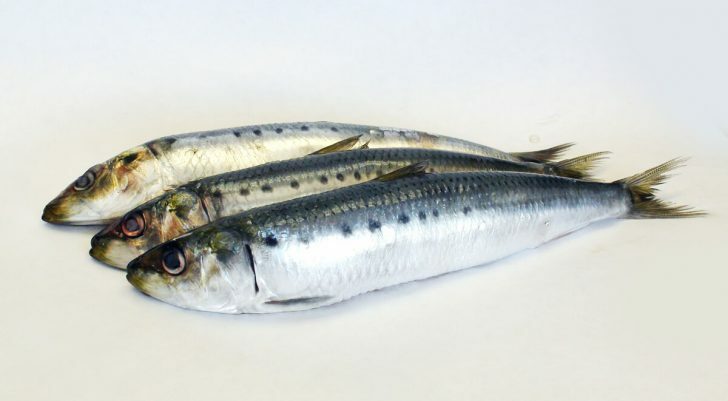Basil: benefit and harm
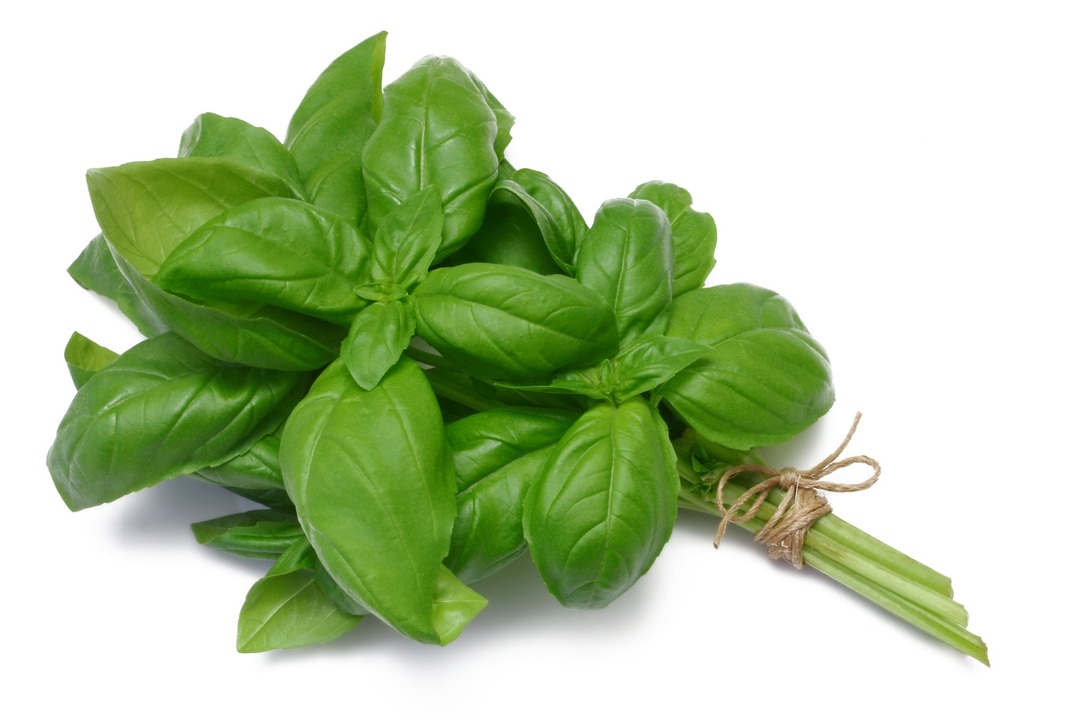 Not many people add basil to dishes - they prefer the usual greenery: parsley and dill.But this plant has colossal useful properties, which everyone should know about.In addition, the basil gives a unique spicy flavor to the dishes.Beautiful and original to decorate your culinary masterpiece with the help of leaves of this greenery is simple - it fits well with vegetable and meat salads, main dishes and even desserts.But even this is not all!Basil has healing properties, as well as doctors of ancient civilizations knew.
Not many people add basil to dishes - they prefer the usual greenery: parsley and dill.But this plant has colossal useful properties, which everyone should know about.In addition, the basil gives a unique spicy flavor to the dishes.Beautiful and original to decorate your culinary masterpiece with the help of leaves of this greenery is simple - it fits well with vegetable and meat salads, main dishes and even desserts.But even this is not all!Basil has healing properties, as well as doctors of ancient civilizations knew.
Interesting : there are more than 150 varieties of basil and each of them is useful in its own way - depends on how much greater the concentration of those or other substances is in the plant . In Italy, basil is a symbol of love, in Mexico it is considered an amulet from the betrayal of a loved one, and in Romania - by consent to the betrothal.
Nutritional value basil
Chemical composition:
- Calories: 23 kcal
- Protein: 3.15 g
- Fat: 0.64 g
Show the full list »
- Carbohydrates: 265 c
- Dietary fiber: 1.6 g
- Ash: 1.49 c
- Water: 92.06 grams
- Mono- and disaccharides: 0.3 c
- saturated fatty acids: 0.041 c
Vitamins:
- Beta-carotene: 3,142 mg
- Vitamin A( RE): 264 μg
- Vitamin B1( thiamine): 0.034 mg
- Vitamin B2( Riboflavin) 0.076 mg
- Vitamin B5( pantothenic): 0.209 mg
- Vitamin B6( pyridoxine): 0.155 mg
- Vitamin B9( folic): 68. mu.g
- Vitamin C: 18 mg
- Vitamin E(FC): 0.8 mg
- Vitamin K( phylloquinone): 414.8
- mcg Vitamin PP( niacin equivalent): 0.902 mg Choline
- : 11.4 mg
Macronutrients:
- Calcium:
- 177 mg Magnesium 64 mg Sodium
- 4
- mg Potassium 295 mg Phosphorous
- : 56 mg
Microelements:
- Iron: 3.17
- mg Zinc 0.81 mg
- Copper 385 mcg
- Manganese: 1.148 mg Selenium
- 0.3 microns
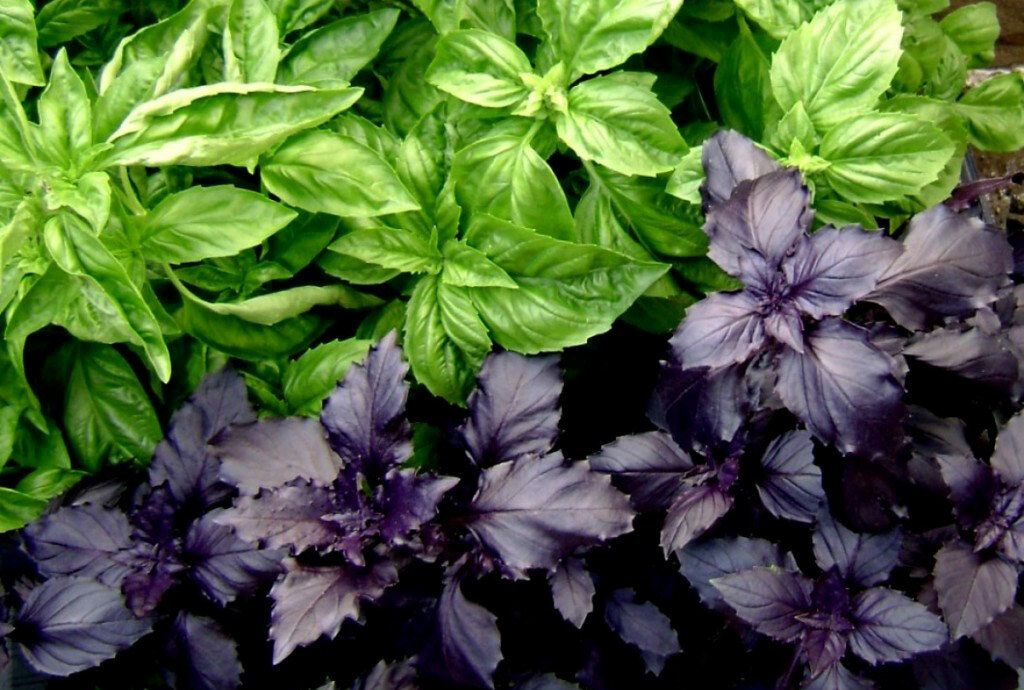 useful properties due to the presence of basil:
useful properties due to the presence of basil:
- Vitamins - A, B, K, E, PP, C + beta-carotene and Choline;
- Complex of trace elements - iron, phosphorus, zinc, potassium, calcium, copper, selenium, manganese, sodium;
- Amino acids - threonine, leucine, methionine, etc.;
- Phytoncid, routine;
- Volatile fragrant substances.
During the flowering period, the leaves and stems of the basil contain a lot of ascorbic acid, and the seeds are saturated with fats.
Basil Use
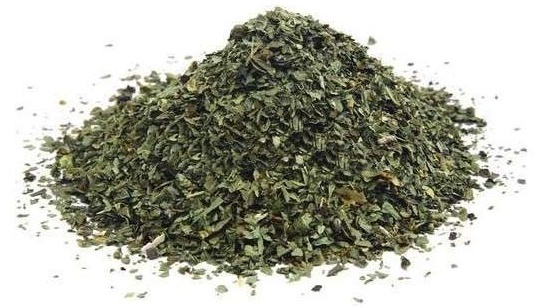
Basil is used not only in fresh form.It is also valuable in dried form provided that the rules of harvesting are observed.
Than basil is useful:
- Stimulates cardiac activity;
- Helps to normalize body weight - perfect for those who want to lose weight properly without losing their strength;
- Accelerates the process of recovery of the body after various diseases.
- It is an excellent antiseptic, therefore it has a beneficial effect on the body in the presence of internal inflammatory processes.
- Strengthens the immune system.
- Stabilizes the work of the digestive tract.
- Gently dissolves kidney stones if they are small in size.
- Eliminates various dental problems.
- Relieves pain and inflammation of the laryngeal mucosa in ARVI and ARI.
- Helps increase blood pressure in hypotension.
- It is a diaphoretic and antipyretic agent, therefore it is recommended to accelerate the recovery process for pulmonary and colds.
- Has a preventive effect on the human body as an antioxidant.
- Eliminates flatulence.
- Increases potency in men.
 Important : baths with the addition of this plant restore the smoothness and elasticity of the skin.Decoctions and tinctures help quickly get rid of cough.
Important : baths with the addition of this plant restore the smoothness and elasticity of the skin.Decoctions and tinctures help quickly get rid of cough.
In addition, the use of basil is recommended not only during pregnancy, but also during breast feeding of the baby.In the first case, it will help the woman's body to stock up with all the necessary substances to form the teeth and bones of the fetus, and in the second - to establish the process of milk formation in the right amount.
Harmful Basil and Contraindications
- During pregnancy, it can increase the tone of the uterus and provoke premature birth or complications of pregnancy, so it is highly undesirable for women who have this pathology to include this herb in their diet.
- You can not use it with pronounced chronic hypertension, problems with the liver.
- Also contraindications are a previous heart attack or the presence of diabetes mellitus.
- In high concentration and quantity, like any other plant, can cause poisoning.
Important : despite all the medicinal properties of the basil and a wide range of its beneficial effects, it is not recommended to introduce it into the diet for children under 7 years of age.
Useful advices
Folk and culinary recipes for the preparation of medicinal products and delicious salads or sauces huge amount. We offer you some of them that will surely be of use to everyone:
- In order to avoid bouts of nausea from motion sickness in transport with a long trip on the bus or flight, periodically keep a couple of leaves of basil in your mouth.
- To relieve fatigue in the eyes, prepare an infusion of 2 tbsp.L.Dry basil and 1.5 liters of hot water.Do from this lotion infusion for ever 2 times a day for one and a half weeks.
- Quickly remove the pain syndrome for colds will help the decoction of 2 tbsp.L.Dry leaves and 1 glass of water.They need to gargle up to 3 times a day.
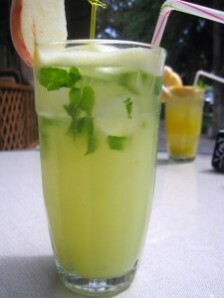 Taste a thirst in the hot heat with a delicious lemonade with basil:
Taste a thirst in the hot heat with a delicious lemonade with basil:
- Rinse the bunch of basil leaves and part of the stem.
- Fill it with boiling water in a volume of 2 liters.
- Add 4 tbsp.L.Sugar and squeeze out 1 lemon as you cool down.
- When the lemonade completely cools down, the drink will acquire a beautiful, saturated pink shade.
- Add ice or just drink without additional cooling, and evaluate how pleasant it's flavor and aroma.
Interesting : the very name of the basil is translated as "royal", "royal".The ancient Greeks believed that it could be collected only by a worthy person - a monarch who personally cut the sickle leaves.In later times, it is with this fragrant grass that various "unknowing", chilling superstitions are connected, for example, the transformation of forgotten leaves under a bowl into scorpions.


